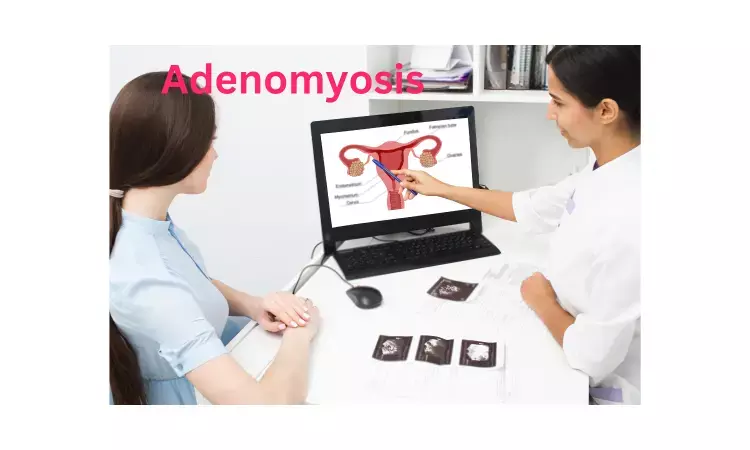- Home
- Medical news & Guidelines
- Anesthesiology
- Cardiology and CTVS
- Critical Care
- Dentistry
- Dermatology
- Diabetes and Endocrinology
- ENT
- Gastroenterology
- Medicine
- Nephrology
- Neurology
- Obstretics-Gynaecology
- Oncology
- Ophthalmology
- Orthopaedics
- Pediatrics-Neonatology
- Psychiatry
- Pulmonology
- Radiology
- Surgery
- Urology
- Laboratory Medicine
- Diet
- Nursing
- Paramedical
- Physiotherapy
- Health news
- Fact Check
- Bone Health Fact Check
- Brain Health Fact Check
- Cancer Related Fact Check
- Child Care Fact Check
- Dental and oral health fact check
- Diabetes and metabolic health fact check
- Diet and Nutrition Fact Check
- Eye and ENT Care Fact Check
- Fitness fact check
- Gut health fact check
- Heart health fact check
- Kidney health fact check
- Medical education fact check
- Men's health fact check
- Respiratory fact check
- Skin and hair care fact check
- Vaccine and Immunization fact check
- Women's health fact check
- AYUSH
- State News
- Andaman and Nicobar Islands
- Andhra Pradesh
- Arunachal Pradesh
- Assam
- Bihar
- Chandigarh
- Chattisgarh
- Dadra and Nagar Haveli
- Daman and Diu
- Delhi
- Goa
- Gujarat
- Haryana
- Himachal Pradesh
- Jammu & Kashmir
- Jharkhand
- Karnataka
- Kerala
- Ladakh
- Lakshadweep
- Madhya Pradesh
- Maharashtra
- Manipur
- Meghalaya
- Mizoram
- Nagaland
- Odisha
- Puducherry
- Punjab
- Rajasthan
- Sikkim
- Tamil Nadu
- Telangana
- Tripura
- Uttar Pradesh
- Uttrakhand
- West Bengal
- Medical Education
- Industry
Mifepristone an effective and safe drug for adenomyosis: JAMA

Internal endometriosis, or adenomyosis is most undermined disease, it defined as the presence of ectopic endometrial glands and stroma in the myometrium. The prevalence of adenomyosis has been estimated to range from 5% to 70%, and approximately 20% of reproductive-aged people with a uterus are diagnosed with adenomyosis.
A recent randomized clinical trial found that mifepristone was effective and safe for the treatment of adenomyosis, which supports the repositioning of this drug as a new treatment option for adenomyosis. The study is published in JAMA Network.
Dr Xuan Che, PhD and team evaluated whether mifepristone is effective and safe for adenomyosis treatment or not.
Researchers conducted multicenter, placebo-controlled, double-blind randomized clinical trial was conducted in 10 hospitals in China. In total, 134 patients with adenomyosis pain symptoms were enrolled. Participants were randomized 1:1 to receive mifepristone 10 mg or placebo orally once a day for 12 weeks.
The primary end point was the change in adenomyosis-associated dysmenorrhea intensity, evaluated by the visual analog scale (VAS) after 12 weeks of treatment. Secondary end points included the change in menstrual blood loss, increased level of hemoglobin in patients with anemia, CA125 level, platelet count, and uterine volume after 12 weeks of treatment. Safety was assessed according to adverse events, vital signs, gynecological examinations, and laboratory evaluations.
The key findings of the study are
• A total of 134 patients with adenomyosis and dysmenorrhea were randomly assigned, and 126 patients were included in the efficacy analysis, including 61 patients randomized to receive mifepristone and 65 patients randomized to received the placebo.
• The characteristics of the included patients at baseline were similar between groups. The mean (SD) change in VAS score was −6.63 (1.92) in the mifepristone group and −0.95 (1.75) in the placebo group (P < .001).
• The total remission rates for dysmenorrhea in the mifepristone group were significantly better than those in the placebo group (effective remission: 56 patients [91.8%] vs 15 patients [23.1%]; complete remission: 54 patients [88.5%] vs 4 patients [6.2%]).
• All the secondary end points showed significant improvements after mifepristone treatment for menstrual blood loss, hemoglobin (mean [SD] change from baseline: 2.13 [1.38] g/dL vs 0.48 [0.97] g/dL; P < .001).
Dr Xuan and team concluded that “This randomized clinical trial showed that mifepristone could be a new option for treating patients with adenomyosis, based on its efficacy and acceptable tolerability.”
Reference: Che X, Wang J, Sun W, et al. Effect of Mifepristone vs Placebo for Treatment of Adenomyosis With Pain Symptoms: A Randomized Clinical Trial. JAMA Netw Open. 2023;6(6):e2317860. doi:10.1001/jamanetworkopen.2023.17860
MSc. Neuroscience
Niveditha Subramani a MSc. Neuroscience (Faculty of Medicine) graduate from University of Madras, Chennai. Ambitious in Neuro research having worked in motor diseases and neuron apoptosis is interested in more of new upcoming research and their advancement in field of medicine. She has an engrossed skill towards writing and her roles at Medical dialogue include Sr. Content writer. Her news covers new discoveries and updates in field of medicine. She can be reached at editorial@medicaldialogues.in
Dr Kamal Kant Kohli-MBBS, DTCD- a chest specialist with more than 30 years of practice and a flair for writing clinical articles, Dr Kamal Kant Kohli joined Medical Dialogues as a Chief Editor of Medical News. Besides writing articles, as an editor, he proofreads and verifies all the medical content published on Medical Dialogues including those coming from journals, studies,medical conferences,guidelines etc. Email: drkohli@medicaldialogues.in. Contact no. 011-43720751


